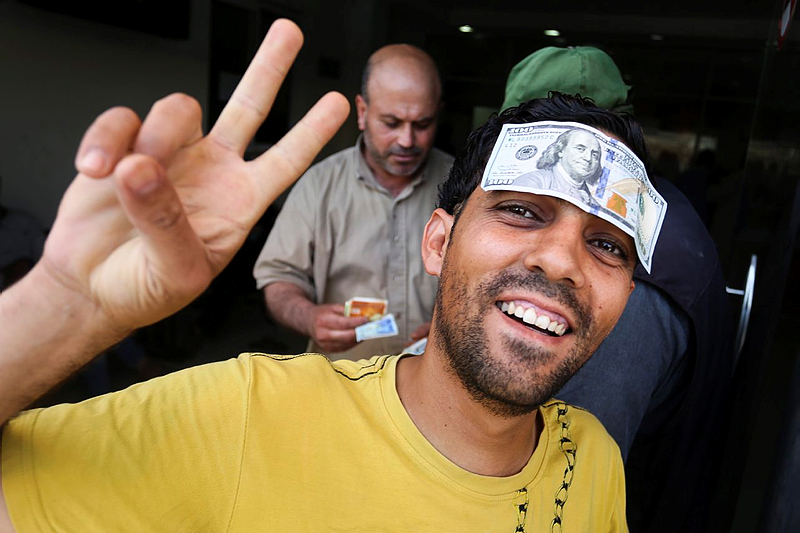Israel wants the cash delivered quietly so as not to arouse public disapproval, Gaza sources say.
By World Israel News Staff
On Monday, Hamas will distribute the monthly grant which Qatar promised to deliver back in June in order to provide 60,000 needy families in the Gaza Strip. They will each be given $100.
According to the Ynet news site, Palestinians in Gaza wonder how the millions were transferred into the Strip.
The news outlet reports that it is done secretly, and that sources in Gaza told Ynet that doing so is part of an agreement with Israel so as to avoid public criticism in Israel.
In November 2018, pictures of suitcases filled with $15 million in Qatari cash entering the Strip sparked criticism from opposition politicians against the Netanyahu government. Tzipi Livni, then head of the opposition, said Prime Minister Benjamin Netanyahu “has sold out [our] security to his associates and has purchased temporary quiet from Hamas.”
The Jerusalem Post described the suitcases of cash traveling through the Erez border crossing as “reminiscent of a mafia movie.”
Israeli security sources deny that Israel has an agreement to deliver the cash quietly, Ynet reports. However, it notes that the same sources wouldn’t say how the millions in cash were delivered.
Israel’s security agencies are all in favor of transferring Qatari cash to the Gaza Strip, which they see as necessary in calming tensions between the terror group Hamas and Israel.
However, the cash transfers open up the government to attacks by opponents. Avigdor Liberman has recently accused Netanyahu of not really being a right-wing prime minister. One of the main reasons he cited is Netanyahu’s willingness to send “protection money” to Hamas.
In June, Blue and White co-leader Moshe Ya’alon, a former IDF chief of staff, attacked Netanyahu’s policy in the same way. “Instead of exacting a heavy price from Hamas over the [incendiary] kites and balloons… we are paying protection money,” Ya’alon said as he visited the areas near the Gaza border.
Netanyahu argued in March that it was better for Israel act as the pipeline for the money, rather than the Palestinian Authority, which channeled the funds in the past.


